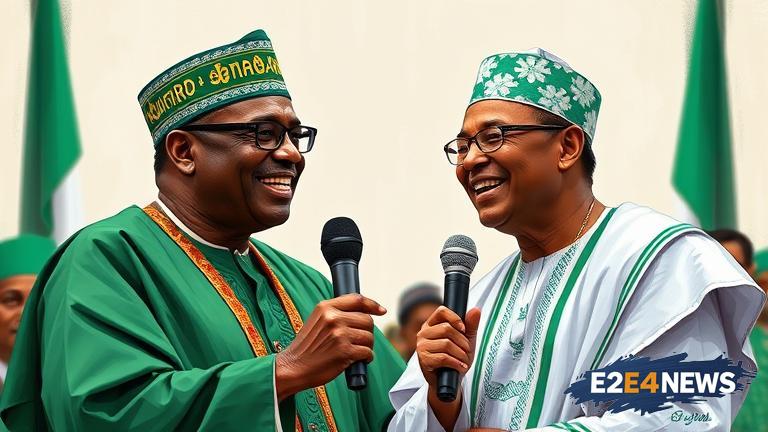In a shocking turn of events, Governor Nasir El-Rufai of Kaduna State has been reported to be rooting for Atiku Abubakar, the presidential candidate of the African Democratic Congress (ADC). This endorsement has raised eyebrows, given El-Rufai’s affiliation with the All Progressives Congress (APC). The news has sent shockwaves throughout the Nigerian political landscape, with many questioning the motivations behind El-Rufai’s decision. Atiku Abubakar, a former Vice President of Nigeria, has been a prominent figure in the country’s politics for decades. His candidacy has been gaining momentum, with many Nigerians seeing him as a viable alternative to the current administration. El-Rufai’s endorsement is seen as a significant boost to Atiku’s campaign, given the governor’s influence in the northern region of Nigeria. However, it is unclear what prompted El-Rufai to throw his weight behind Atiku, especially considering their differences in political ideology. The APC has been facing internal conflicts, and El-Rufai’s endorsement of Atiku may be a sign of deeper divisions within the party. The move has also sparked speculation about El-Rufai’s future in the APC, with some suggesting that he may be planning to defect to the ADC. Atiku Abubakar has welcomed El-Rufai’s endorsement, stating that it is a testament to his commitment to unity and progress. The ADC has also hailed the endorsement, seeing it as a major victory for their party. The development has significant implications for the upcoming presidential election, which is expected to be highly contested. The APC has dismissed El-Rufai’s endorsement, stating that it is not reflective of the party’s stance. The party has reiterated its support for its presidential candidate, Bola Tinubu. The controversy surrounding El-Rufai’s endorsement has sparked a heated debate, with many Nigerians taking to social media to express their opinions. While some have praised El-Rufai for his bold move, others have criticized him for betraying his party. The situation has also raised questions about the role of party loyalty in Nigerian politics. As the election season heats up, it remains to be seen how El-Rufai’s endorsement will impact the outcome of the presidential election. The development has also highlighted the complexities of Nigerian politics, where alliances and rivalries can shift quickly. Atiku Abubakar’s campaign has been focused on issues such as economic development, security, and corruption. El-Rufai’s endorsement may help to bolster Atiku’s credentials on these issues, particularly in the northern region. However, it is unclear how the endorsement will play out in other parts of the country, where Atiku’s popularity may be more limited. The ADC has been working to build a strong coalition of supporters, and El-Rufai’s endorsement may be a significant step in this direction. As the election approaches, Nigerians will be watching closely to see how the situation unfolds. The country’s political landscape is known for its unpredictability, and the outcome of the election is far from certain. One thing is clear, however: El-Rufai’s endorsement of Atiku Abubakar has shaken up the political landscape, and its implications will be felt for weeks to come.





